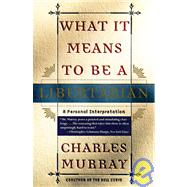
Note: Supplemental materials are not guaranteed with Rental or Used book purchases.
Purchase Benefits
| Introduction | p. xi |
| The Framework | p. 1 |
| Principles | p. 3 |
| The Public Good | p. 11 |
| The Pursuit of Happiness | p. 18 |
| An Image of Limited Government | p. 36 |
| How Would it Work? | p. 45 |
| The Trendline Test | p. 47 |
| Choosing to Do It Ourselves | p. 57 |
| Removing Government from Economic Life | p. 60 |
| Tolerance and Discrimination | p. 79 |
| Permitting Revolutions in Education and Health Care | p. 90 |
| Sex, Drugs, and Rock and Roll | p. 102 |
| Protecting the Environment | p. 114 |
| Removing Government from Civil Life | p. 124 |
| Loose Ends | p. 139 |
| Is it Possible? | p. 141 |
| Gloom and Hope | p. 143 |
| Government As "Them" | p. 144 |
| The Demand to Be Left Alone | p. 149 |
| Lived Freedom | p. 157 |
| The Stuff of Life | p. 163 |
| Conclusion | p. 169 |
| Sources and Acknowledgments | p. 171 |
| Table of Contents provided by Syndetics. All Rights Reserved. |
The New copy of this book will include any supplemental materials advertised. Please check the title of the book to determine if it should include any access cards, study guides, lab manuals, CDs, etc.
The Used, Rental and eBook copies of this book are not guaranteed to include any supplemental materials. Typically, only the book itself is included. This is true even if the title states it includes any access cards, study guides, lab manuals, CDs, etc.
Excerpted from What It Means to Be a Libertarian by Charles Murray
All rights reserved by the original copyright owners. Excerpts are provided for display purposes only and may not be reproduced, reprinted or distributed without the written permission of the publisher.